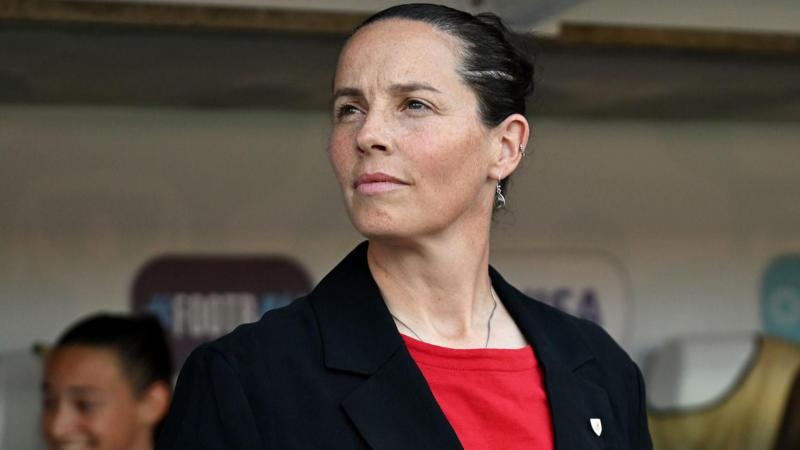Wilkinson Hints at Imminent Retirement of Key Wales Players




In a move that hints at a forthcoming transformation for Welsh women's football, head coach Rhian Wilkinson has indicated that some veteran players in her squad might be considering retirement from the international stage. This development unfolds as the team looks ahead to future competitions, pondering a generational shift that could reshape the squad's dynamics and strategy.
Rhian Wilkinson, who took over the reins of the Wales women's national team in 2021, has been instrumental in nurturing a blend of experienced stalwarts and budding talents. Her coaching philosophy emphasizes resilience, tactical intelligence, and a strong team ethos—traits that have endeared her to both players and fans alike. However, the natural cycle of sports careers suggests that transitions are inevitable, particularly with players who have long shouldered the responsibilities of representing their nation at the highest level.
The potential retirements could signal the end of an era for several key players who have been integral to the team's successes and growth over the years. These players have not only lifted the profile of women's football in Wales but have also served as role models for younger athletes stepping onto the pitch. Their departure would undoubtedly leave big shoes to fill, both in terms of skill and leadership.
This scenario is not unique to the Welsh team but is a universal rite in the sports world, where the torch is passed from one generation to the next, often amidst emotional farewells and hopeful welcomes. For the veterans, this moment might bring a poignant mix of pride in their achievements and the inevitable bittersweet tug of moving on. For the emerging talents, it presents an invaluable opportunity to step up and carve out their own legacies under the guidance of Wilkinson, who herself is a former international with a wealth of experience.
Looking ahead, the transition could also serve as a pivotal moment for Wilkinson’s strategic planning. Integrating younger players into the national team not only rejuvenates the squad but also injects fresh perspectives and energies that could prove crucial in tight matches. The infusion of young blood is essential for keeping the team competitive on the international scene, particularly as the sport continues to evolve at a rapid pace.
The upcoming UEFA Women’s Euro and FIFA Women’s World Cup qualifiers present a perfect backdrop for this transition. These competitions are critical in testing the mettle of new players and in building a team that could sustain success over multiple tournament cycles. For Wilkinson and her coaching staff, managing this transition effectively will require a balanced approach—honoring the contributions of outgoing veterans while fostering an environment where young players can flourish.
Moreover, the potential retirements and the consequent integration of newer players could catalyze a more expansive scouting and development program within Wales. Investing in grassroots development and local leagues might become even more of a priority, ensuring a steady pipeline of talent ready to don the national jersey.
In terms of fan support, Welsh supporters are known for their passionate backing of national teams. The looming changes within the women’s squad will likely rally this fan base to support the team through a period of transformation. Fans will be curious and eager to see how new players adapt and how Wilkinson leverages her international experience to blend the old guard with new prospects.
As the narrative of Welsh women's football continues to unfold, the spotlight will be as much on those who are moving on as on those stepping into the fray. In the cyclical nature of sports, every end is a new beginning. For Welsh football, this transition might just be the dawn of a new, exhilarating chapter, driven by the legacy of its veterans and the promise of its future stars.